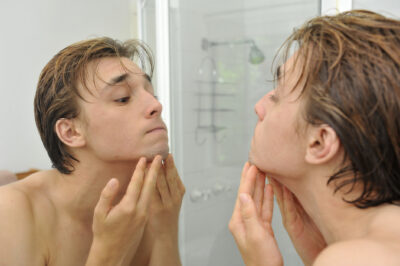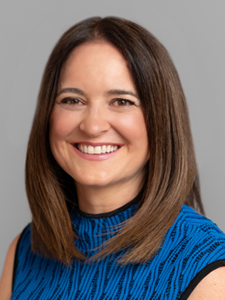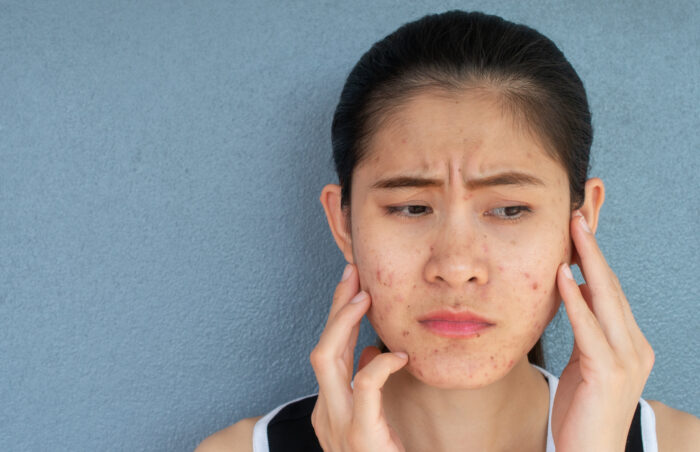Acne: Is It Necessary?! (Part 2)
by Chesney Kennedy, MD
Pediatrics at Boulder Medical Center
Longmont and Boulder
Is acne necessary? The answer is no! There are excellent acne treatments that prevent permanent scars and can give you a skip in your step! Improving acne can improve your mood and give you a boost of confidence. In this article, I will share some tried-and-true methods for treating acne and newer therapies you may not be familiar with.
This is the second of a two-part series. Part One addresses acne causes, prevention, and basic skin care for teens.
*****
First, a few notes:
- Note #1: For this article, I use the words “male” and “female” as related to the sex one is assigned at birth (or the physical traits your child was born with). In addition, gender identity matters when it comes to acne treatment. Your doctor needs to know your child’s gender identity to prescribe the best treatment.
- Note #2: Although I mention many products and medications in this article, I receive zero funding for mentioning them and have no financial incentives.
- Note #3: The information provided in this blog is for general informational purposes only and is not intended as a substitute for professional medical advice, diagnosis, or treatment. Always seek the advice of your physician or other qualified health provider regarding a medical condition. Never disregard or delay seeking professional medical advice because of something you have read on this blog. If you think you may have a medical emergency, call 911 immediately.
*****
 The Basics of Acne Treatment
The Basics of Acne Treatment
Acne creams or gels are designed to prevent future pimples. It is important to note that these products will not improve the pimples that you currently have. However, consistently and regularly using these products can help prevent breakouts. It is ineffective to only apply the cream or gel on individual pimples; the product should be applied to your entire face every time for best results.
Sadly, there is no instant gratification with any acne treatment. Most acne treatments take 2-3 months to work. Be patient — it is worth it!
However, if it doesn’t work, talk to your doctor about trying something stronger or different.
Part One of this article reviews skincare basics.
Treating Mild Acne
Benzoyl Peroxide — If you have just a few pimples or blackheads, you can start with over-the-counter benzoyl peroxide (2.5%, 5%, or 10%) once daily, morning or night. Although these products have three strengths, they work about the same. Benzoyl peroxide comes in creams and gels. Gels are better for very oily skin, and creams are better for dryer skin. I love benzoyl peroxide because not only does it break down dead skin cells, but it also has a natural antibiotic effect against P. acnes bacteria. Don’t forget that benzoyl peroxide can bleach your clothes or sheets, so be careful when applying. I recommend using white sheets and wearing white pajamas. If your skin becomes too dry with benzoyl peroxide, you can use it every other night until your skin gets used to it. You can also add a moisturizer to your skincare routine.
Azaleic Acid — Azaleic Acid 15-20% cream or gel is an excellent option for a natural product. The higher strengths require a prescription. Azelaic acid is a breakdown product of wheat; we already have it circulating in our bodies if we eat this whole grain. Like benzoyl peroxide, it has a natural antibiotic effect but is sometimes better tolerated by people with extra sensitive skin.
Retinoid — If your acne is more severe or the benzoyl peroxide is not enough, add a retinoid cream. Retinoids can be very effective acne medications because they break down plugs of dead skin cells by increasing cell turnover. The most well-known retinoid is called tretinoin (brand name Retin-A). It requires a prescription. Retin-A has three strengths (0.025%, 0.05%, and 0.1%). Strength matters for tretinoin; starting with a low strength is usually best. This strategy can prevent excessive dryness or irritation.
Another retinoid is Adapalene, which is sold over the counter. I tell my patients that Adapalene is not an excellent treatment for acne on its own but can be effective when combined with benzoyl peroxide. The benzoyl peroxide and the retinoid must be applied at separate times (benzoyl peroxide in the morning and Adapalene or tretinoin at night). If your skin becomes too dry or irritated, try a lower-strength retinoid every other night or mix it with a moisturizer. Very important — do not use more than a tiny pea-size amount of retinoid for your entire face, or your skin will become too dry and irritated. Avoid the corners of your eyes, nose, and mouth, or they can become irritated. I see many teenagers who enthusiastically start by putting too much retinoid on their face and regret it because their face gets too dry and irritated.
There are currently some prescription creams that have a combination of benzoyl peroxide and a retinoid:
- Benzoyl peroxide 3% + tretinoin 0.1% (brand name Twyneo)
- Benzoyl peroxide 2.5% + Adapalene 0.3% (brand name Epiduo Forte)
These pre-made prescription creams are specially formulated to go together. Still, if you have a separate Benzoyl peroxide and retinoid, you must separate the applications to be effective: benzoyl peroxide (AM application) and retinoid (PM application).
- Tezeritine (brand name Tazorac) is quite a strong retinoid that can be good for acne on the back.k
- Triferotene (Aklief) is also a strong retinoid approved for the back, chest, and face. It is usually tolerated well and can be less irritating than the Tazorac.
Moderate to Severe Acne
Medical providers generally use fewer antibiotics to treat acne to avoid antibiotic resistance. But topical antibiotics (in addition to benzoyl peroxide) can help with acne. These include clindamycin, minocycline, sulfacetamide, and dapsone. Dapsone can be effective for susceptible skin that can’t tolerate retinoids.
For many red and pus-filled bumps, an oral antibiotic pill (like doxycycline or minocycline) can be used along with a retinoid at low doses for no more than 2-3 months. Once the skin is improving, you can transition back to just creams. If the acne worsens again when you come off the antibiotic, either hormonal medications or Isotretinoin (formerly brand name Accutane) may be effective next steps.
Hormone therapies can work well for a specific type of acne we call papular acne – lots of red bumps. Some of these are creams, and some of them are pills. Both males and females can use the creams, but the pills can only be used by females.
Creams include Clascoterone (brand name Winlevi), which works by decreasing sebum production. It works very well but unfortunately can be very expensive. Spironolactone cream is a similar, less expensive product, but only specialty or compounding pharmacies can dispense this.
Oral hormones (pills) can only be taken by females. These include spironolactone, which can be effective for girls who may have irregular periods and acne (or PCOS). This is a diuretic, meaning it makes you urinate more frequently, so you need to stay well-hydrated while taking it. It can also increase potassium levels, so eat bananas and other high-potassium foods in moderation. The majority of girls who take this have significant improvement. One-third of the girls who take it completely clear their acne.
Another hormone therapy is oral contraceptive pills. The one that works best for acne is Drospirenone: Ethinyl Estradiol tablets (brand name Yaz or Yasmin).
Severe Acne Treatments
If you have very deep and large cysts, the above therapies will probably not be effective. At this point, I recommend seeing a dermatologist (skin doctor) so you can be prescribed Isotretinoin (formerly Accutane). This highly effective medication is a pill to be taken for five months.
Isotretinoin can have some rare but severe side effects, so it has to be monitored closely. It would be best to get blood tests before starting (and while taking it) to monitor for side effects. Females need to get regular pregnancy tests and be on two types of birth control if they are sexually active because Isotretinoin can cause severe congenital disabilities in the fetus of a pregnant person.
Side effects of Isotretinoin include major sun sensitivity, so daily sunscreen is essential. It usually causes dry, chapped skin of the lips and nose that requires frequent chapstick application. It sometimes causes dryness of the skin around the anus and even rectal bleeding. A rare but severe side effect is pancreatitis. Some individuals can have emotional side effects and report a worsened mood, but the vast majority feel much better emotionally because the acne goes away so quickly.
.This article covered the basics of acne treatment and details on medications for mild, moderate, and severe acne. Do not suffer in silence if you have acne! It is a well-understood skin condition that is very treatable!
References
- Ashton R, et al. Acne Vulgaris in the Pediatric Patient. Pediatr Rev. 1019: 40 (11): 577-589
- Zaenglein AL, et al. Guidelines of care for managing acne vulgaris [published correction appears J. Am Acad Dermatol. 2020 Jun: 82 (6): 1576]. J Am Aced Dermatol. 2016: 74 (5): 945-73.e33
- Peds Rap podcast Pediatric Acne Part 1 and Part 2 with Parul Bhatia, MD, and Karen Sherwood, MD
About Chesney Kennedy, MD
Pediatrician in Longmont and Boulder
 Dr. Chesney Kennedy is your dedicated partner in pediatric healthcare, serving families in Longmont and Boulder, Colorado. With a solid commitment to the well-being of children and teenagers, she goes above and beyond to create an inclusive and welcoming environment for all, including the LGBTQIA+ community, ensuring that everyone feels comfortable and respected in her practice. Specializing in:
Dr. Chesney Kennedy is your dedicated partner in pediatric healthcare, serving families in Longmont and Boulder, Colorado. With a solid commitment to the well-being of children and teenagers, she goes above and beyond to create an inclusive and welcoming environment for all, including the LGBTQIA+ community, ensuring that everyone feels comfortable and respected in her practice. Specializing in:
General Pediatrics
- Newborn Care
- Well-Child and Preventive Care
- Personalized Primary Care: Tailored healthcare solutions to address the unique needs of each child
- Sick Visits
- Mental Health: Support for depression, anxiety, and ADHD
- Sports Physicals
- Vaccinations
Teens
Dr. Chesney’s services for teens include:
- Birth Control: Providing a range of options, including IUDs, Nexplanon®, birth control pills, Depo shots, and counseling
- Emergency Contraception: Offering Plan B
- Heavy Periods: Dr. Kennedy is here to address and manage heavy and irregular menstrual cycles
- Pregnancy Options & Counseling
- Sexually Transmitted Infections: Offering testing, diagnosis, and treatment
- Acne

